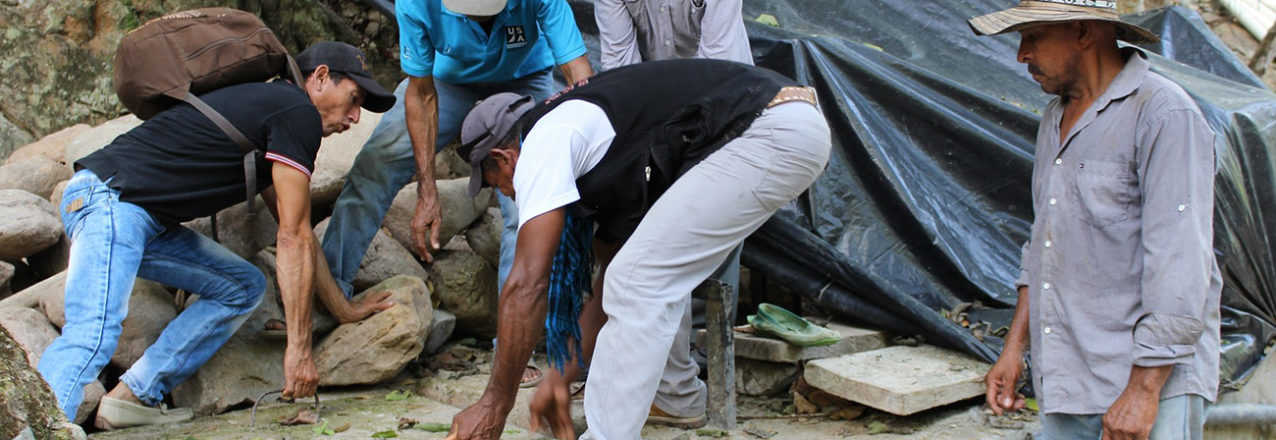Q&A with the Director of the Rural Development Agency, Carlos Eduardo Géchem
Originally appeared on Exposure.
THE RURAL DEVELOPMENT AGENCY
CREATED IN THE WAKE OF INCODER’S DISSOLUTION, THE RURAL DEVELOPMENT AGENCY (ADR) IS TASKED WITH PUSHING FORWARD PROJECTS THAT CAN IMPROVE THE LIVELIHOODS OF CAMPESINOS AND SUPPORT RURAL AND AGRICULTURAL DEVELOPMENT IN COLOMBIA. INCREASINGLY, COORDINATION WITH GOVERNORS’ OFFICES IS GAINING IMPORTANCE. CARLOS EDUARDO GÉCHEM SPEAKS OF THE RURAL DEVELOPMENT AGENCY’S STRATEGY OF REHABILITATING SMALL-SCALE IRRIGATION DISTRICTS IN THE COUNTRY AND HOW THE AGENCY IS ENSURING THE SUSTAINABILITY OF THE PROJECTS IT SUPPORTS.
Q: How is the agency’s strategy and philosophy different from that of its predecessor, INCODER?
A: There are two key issues. First, we’re proposing a change in mentality among producers’ associations so they understand that the Rural Development Agency is willing to co-finance productive projects, so long as they also contribute resources, which can take many forms. Second, these projects must be sustainable. Today’s projects include families that are going to enjoy the possibility of not just being part of an association, receiving technical assistance, and adapting their lands, but also to be linked to marketing channels for their products.
Q: What role should governors’ offices play in terms of carrying rural development projects forward?
A: Our work with governors’ offices begins with Comprehensive Rural Development Plans, which means planning what we’re going to do. In this regard, some departments are more advanced than others, and there are departments where we’re helping develop a long-term agricultural policy. Then we begin coordinating around the projects’ financing because producers’ resources are limited. Based on this planning, we set up projects where everyone has a role to play, can contribute some resources, and can offer their knowledge, in order to ensure that the joint effort leads to results.
Q: USAID, through the Land and Rural Development Program, supports the creation of plans utilized by departments and municipalities to plan rural development investments. How important are these plans for the Rural Development Agency to do its work?
A: They’re fundamental. First, you need to develop plans in order to implement, and that’s what we are doing now with many departments. The case of Cesar has an advantage, which is that it has been advancing—with the help of USAID and due to willingness within the region—in a series of plans that today allow us to better coordinate our work and to intervene. Without these plans, we’d have to begin at an earlier stage, go back to analyzing and planning, and then executing. All this means more time—and communities in the regions need to see results now.
Q: In the case of Cesar, USAID focused efforts on the governor’s office to expand the focus of the Secretary of Agriculture toward comprehensive rural development. What do you think of this concept?
A: That’s how it should be because rural development is more than just agricultural development—it implies irrigation infrastructure, roads, and communications. Our agency’s vision is very similar. We need to guarantee that the countryside becomes a good business venture. To do that, in addition to infrastructure, we need a change in mentality: taking into account the product that’s being sold in the local context, the sellers, transportation, and other things. Success depends on the project being one with a financial closing process, with a structure, with a technical logic. To the extent that this is the case, people will be able to do what they effectively want to do, which is to work in the countryside and to make a dignified living while doing it.


